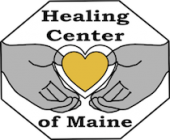Gluten is a protein in wheat that is found in many foods people eat each day. Gluten is in white and wheat breads, pasta, muffins, stuffing, croutons, biscuits, and is often a “hidden” ingredient in many sauces, flavorings, and even toothpaste!
Some people are diagnosed with celiac disease, a harsh disease related to gluten intolerance; digestion is so interrupted that the body cannot absorb nutrients. Other people suffer from gluten intolerance at varying levels that can cause great gastrointestinal discomfort that can then lead to greater illnesses such as Chron’s Disease, heart disease, skin disorders, and even some mental health conditions.
TESTS TO DIAGNOSE CELIAC DISEASE
It’s not easy to find out if you are gluten intolerant, especially if you do not show the typical signs of celiac disease. Doctors do several tests to diagnose celiac disease including the following, according to Peter H. R. Green, M.D. in his book Celiac Disease, A Hidden Epidemic:
1. IgA endomysial antibodies (EMA) – a highly specific marker for celiac disease
2. IgA tissue transglutaminase antibodies (tTG) – a highly specific marker for celiac disease
3. IgG tissue tranglutaminase – valuable in diagnosing celiac disease in patients with selective IgA deficiency
4. Total IgA antibodies – will identify patients who are IgA deficient
5. Deamidated gliadin peptides (DGP) – a new generation antigliadin antibody test that is similar in sensitivity and specificity to the tTG test
(pp. 44)
Other testing includes the Endoscopy and Biopsy which is done through a small camera or scope that is inserted through the mouth. Green calls this biopsy the “gold standard for the diagnosis of celiac disease.” (pp. 49)
There is not really any favored test (that all I’ve read can agree on) to diagnose non-celiac gluten sensitivity. Can you be gluten intolerant and not have celiac disease? The answer is yes! In her book The Core Balance Diet, Marcelle Pick, MSN, OB/GYN NP and co-founder of Women to Women lists gluten and grains (wheat, barley, spelt, kamut, rye, triticale) on her list of foods to avoid for women with digestive sensitivities. (pp. 113)
COULD GLUTEN BE AN ISSUE FOR YOU?
Not only is gluten the issue behind many digestive sensitivities, it is also a very hard thing to digest. Wheat protein takes a lot of work to break down in our digestive systems. There is evidence pointing to the fact that gluten may be a complicating factor in many physical disorders such as chronic fatigue and fibromyalgia.
If you suffer from digestive sensitivities that you have been able to pinpoint, it may be worth eliminating gluten for a period of time. If you find that you keep adding to the list of foods that you think you are “allergic” to, you might have a condition where gluten is complicating your digestion to a point where, on certain days, nothing settles. If you have chronic diarrhea, it might also be worth taking a look at gluten in your diet.
Keep in mind that it is very hard to eliminate gluten since it is in so many of the foods on the market today. If you begin to eliminate gluten and find that you feel better, you may want to keep working it out of your diet. Alternative clinics such as Women to Women in Yarmouth, Maine are committed to helping women find the answers to chronic health issues. They can offer some alternative types of testing to help pinpoint food sensitivities. More information about this clinic can be found online at www.womentowomen.com
Personally, I have found that gluten has been a huge complicating factor in my digestive process for most of my life. Not until I was older did it interfere so much that I had to remove it from my diet. At this stage of my life, I wish I had removed it sooner. My digestive process is still healing from all of the damage gluten did to it over time.
If you are wondering what you could eat on a gluten-free diet, check out my other blog posts related to that topic. Feel free to email me questions or comments. I am not an expert by any means but I have been eating gluten free for almost two years. I have come up with some recipes and hints that can help if you want to pursue a gluten-free diet.
As I am not an expert, please follow the advice of your doctor. Do not start any new diet without your doctor’s approval.
This post is part of Fight Back Friday and Monday Mania .
Green, Peter H. R., Celiac Disease A Hidden Epidemic, William Morrow Publishers, New York, 2006 and 2010.
Pick, Marcelle, The Core Balance Diet, Hay House, Inc., California and New York, 2009
- Do You NEED Vitamin Supplements? - November 12, 2016
- Real Women’s Healthcare – A Missing Link - December 27, 2014
- Touch Matters - August 13, 2013


No comments yet.